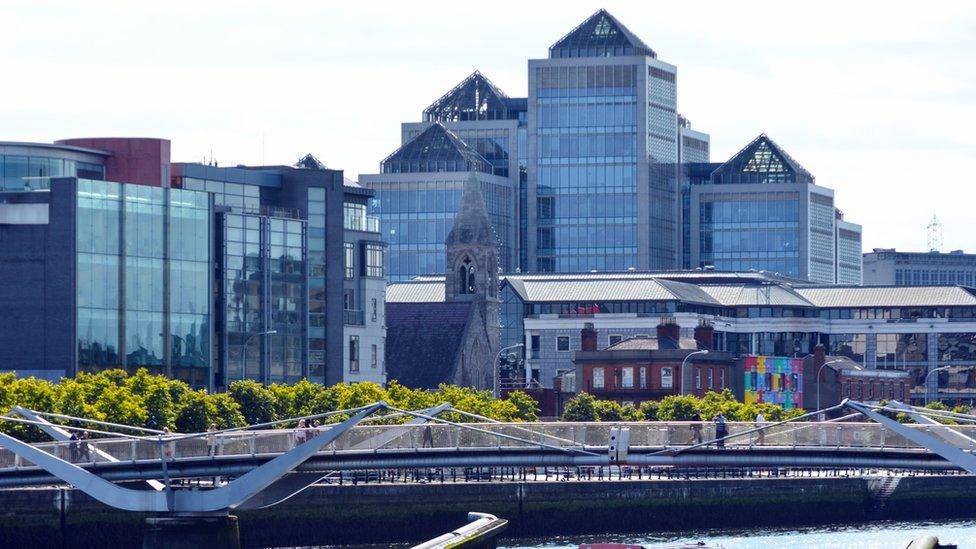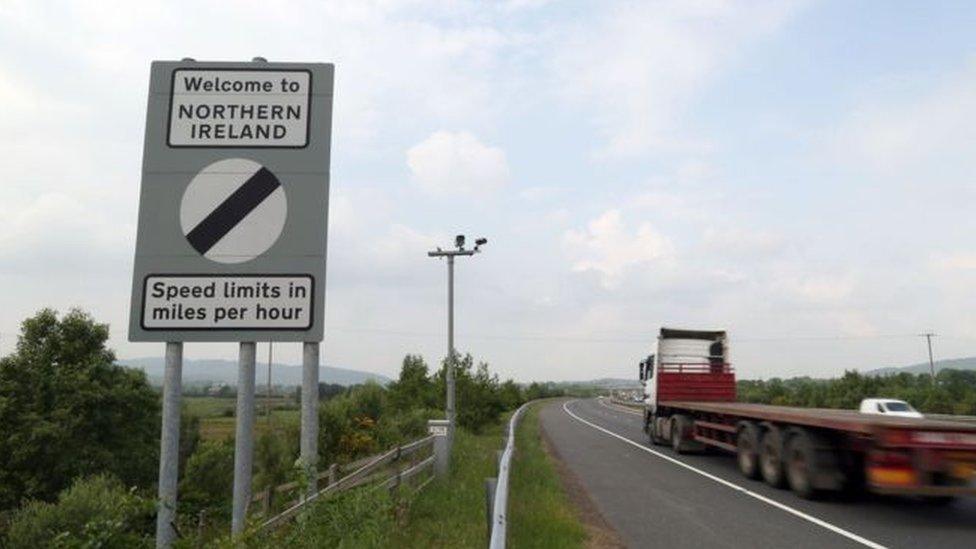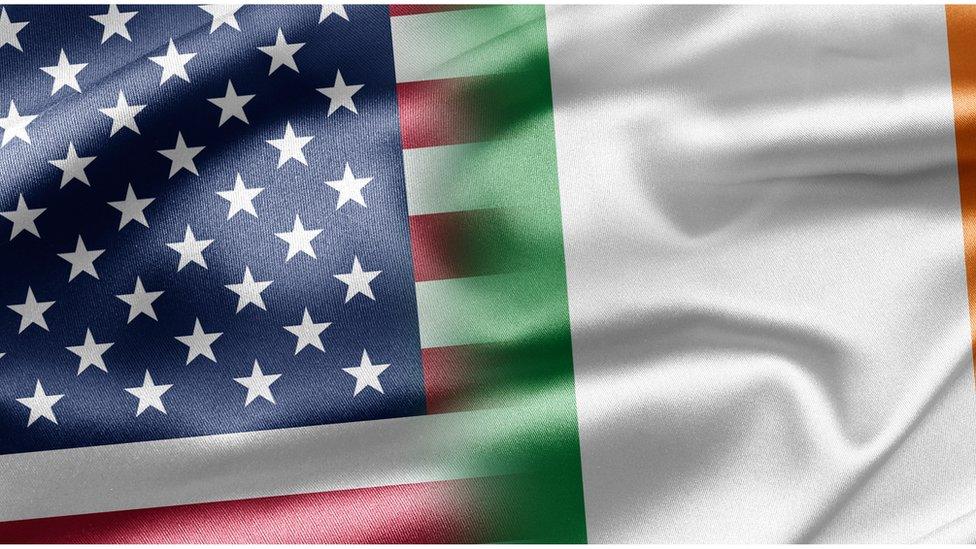Strong growth in Irish economy during 2018
- Published

Dublin is booming as a financial centre
The Republic of Ireland's economy grew strongly in 2018, official figures suggest.
Headline gross domestic product (GDP) grew by 8.2%, according to the country's Central Statistics Office (CSO).
Irish GDP is heavily distorted by the activities of multinational companies that use Dublin as a centre for financing and taxation operations.
However, alternative measures also showed significant growth.
Personal consumption of goods and services, an important indicator of domestic economic activity, grew by 3.4%.

What is GDP?
Gross Domestic Product is the total value of goods produced and services provided in a given time period
It is one of the most important economic statistics as it provides a gauge of total economic activity
GDP growth is the difference in GDP between two time periods

A measure known as modified gross national income (GNI*) showed growth of 7.3% (at current prices).
The CSO developed GNI* having concluded that GDP no longer provided a sufficient understanding of the Irish domestic economy.
It subtracts the retained earnings of global firms that have their headquarters in Dublin.
It also adjusts for the depreciation of categories of foreign-owned domestic capital asset, such as intellectual property rights.
As measured using GDP, the size of the Irish economy in 2018 was €324bn (£291bn) but using GNI* it was €197bn (£177bn).
- Published26 March 2019

- Published5 June 2019
